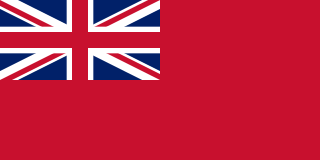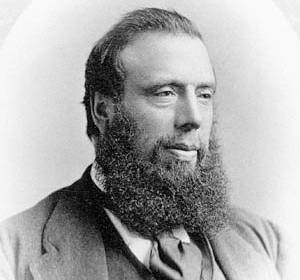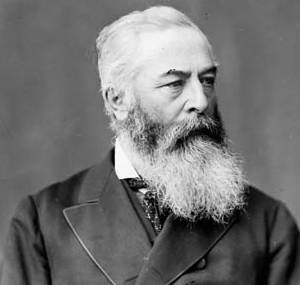William Thompson (June 17, 1786 – January 18, 1860) was a farmer and political figure in Upper Canada.

The Province of Upper Canada was a part of British Canada established in 1791 by the Kingdom of Great Britain, to govern the central third of the lands in British North America, formerly part of the Province of Quebec since 1763. Upper Canada included all of modern-day Southern Ontario and all those areas of Northern Ontario in the Pays d'en Haut which had formed part of New France, essentially the watersheds of the Ottawa River or Lakes Huron and Superior, excluding any lands within the watershed of Hudson Bay. The "upper" prefix in the name reflects its geographic position along the Great Lakes, mostly above the headwaters of the Saint Lawrence River, contrasted with Lower Canada to the northeast.
He was born in New Brunswick in 1786, the son of a United Empire Loyalist, and came to Grantham Township with his family in 1809. He served as captain in the local militia during the War of 1812 and fought at the Battle of Queenston Heights. He was taking prisoner by the Americans while on a scouting expedition. When he returned, his father had died and their property damaged; he settled in Toronto Township. He built a sawmill with his brother in 1817. During the Upper Canada Rebellion, he served as colonel in the York militia and became lieutenant colonel in 1846. In 1824, he was elected to the 9th Parliament of Upper Canada for York and Simcoe. He was a conservative member, with close ties to members of the so-called "Family Compact". After several attempts at reelection, he retired to local politics. In 1844, he became a member of the township council and was reeve in 1851.

New Brunswick is one of four Atlantic provinces on the east coast of Canada. According to the Constitution of Canada, New Brunswick is the only bilingual province. About two thirds of the population declare themselves anglophones and a third francophones. One third of the population describes themselves as bilingual. Atypically for Canada, only about half of the population lives in urban areas, mostly in Greater Moncton, Greater Saint John and the capital Fredericton.

United Empire Loyalists is an honorific which was first given by the 1st Lord Dorchester, the Governor of Quebec, and Governor-General of the Canadas, to American Loyalists who resettled in British North America during or after the American Revolution. The Loyalists were also referred to informally as the "King's Loyal Americans". At the time, the demonym Canadian or Canadien was used to refer to the indigenous First Nations groups and the French settlers inhabiting the Province of Quebec.

The War of 1812 was a conflict fought between the United States, the United Kingdom, and their respective allies from June 1812 to February 1815. Historians in Britain often see it as a minor theater of the Napoleonic Wars; in the United States and Canada, it is seen as a war in its own right.
He died in Toronto Township in 1860.
His grandson, Alfred Burke Thompson, later served in the provincial and federal parliaments.
Alfred Burke Thompson was a barrister and political figure in Ontario, Canada. He represented Simcoe Centre in the Legislative Assembly of Ontario from 1898 to 1902 and from 1905 to 1919 and Simcoe East in the House of Commons of Canada from 1925 to 1935 as a Conservative member.






